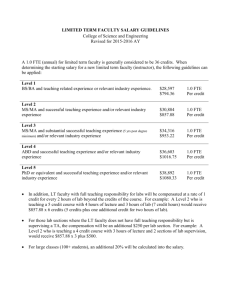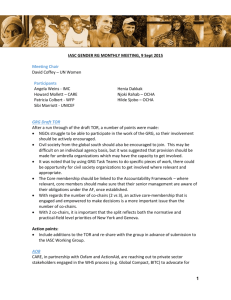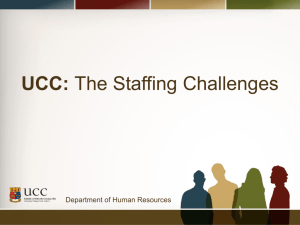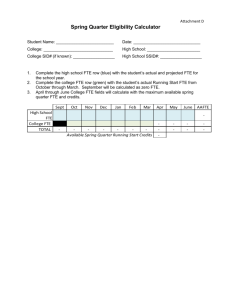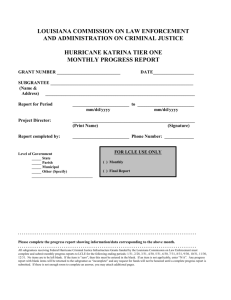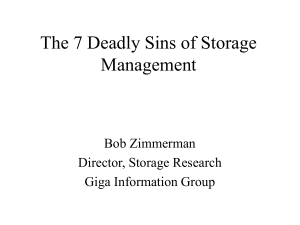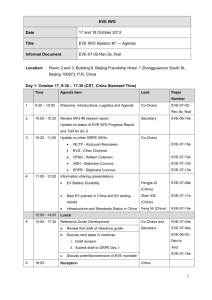1999 Highlights Ken Stroech US EPA Deputy Emergency
advertisement
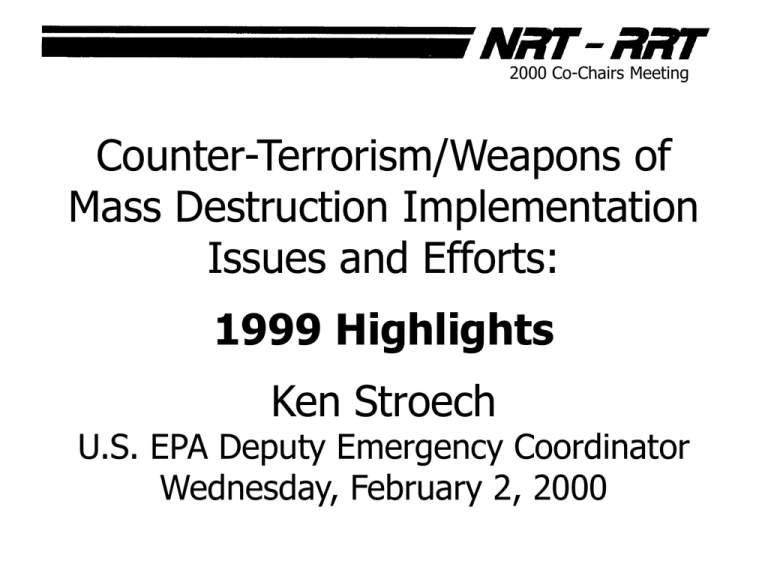
2000 Co-Chairs Meeting Counter-Terrorism/Weapons of Mass Destruction Implementation Issues and Efforts: 1999 Highlights Ken Stroech U.S. EPA Deputy Emergency Coordinator Wednesday, February 2, 2000 2000 Co-Chairs Meeting Session Purpose • To discuss CT issues, exercise results, & recent funding initiatives • To learn about NRT agencies’ CT activities • To further define the role of and future path for NRT and RRTs in coordination, response, and technical support 2000 Co-Chairs Meeting Session Format • Presentations – – – – Ken Stroech - 1999 CT Highlights (10 mins.) Tom Smith - FEMA Consequence Management (10 mins.) Alan Peek - USCG CT Update (10 mins.) Mark Mjoness - Lessons Learned (15 mins.) • Dennis Carney, Terry Brubaker, Chris Field – Scott Lillibridge - CDC/ATSDR Update (20 mins.) • Roundtable discussion – “The Way Ahead . . . NRT/RRT Options for CT Focus” John Gustafson (20 mins.) 2000 Co-Chairs Meeting 1999 CT Highlights • Training Involvement – Level-A training/exercise for regions • Emphasized terrorism-specific response and equipment – Participation in the Domestic Preparedness Program – Emergency Coordination Workshop – Region III CEPP Conference – WMD Coordinators Training 2000 Co-Chairs Meeting 1999 CT Highlights • Guidance Development – Regional CT Reference Manual – Bio Decon Plan – CT Electronic Resource Center • Technical Advances – EPA’s CT Technical Workgroup formed – Mobile Evidence Collection Lab 2000 Co-Chairs Meeting 1999 CT Highlights • Interagency interaction – Coordination with Department and Agency CT program leaders • National Security Council (NSC) • DOD Workgroups – National Guard – Joint Task Force - Civil Support (JTF-CS) • DOJ’s National Domestic Preparedness Office (NDPO) – National Joint Information Center Model approved 2000 Co-Chairs Meeting Changes: DOJ Grants • FY99 County and Municipal Agency Domestic Preparedness Equipment Support Program – Provides $69.5 M for equipment purchases – Eligible to largest 157 metropolitan jurisdictions • FY99 State Domestic Preparedness Equipment Support Program – Targeting 50 States – Developing planning tools to assess need, risk, and threat • Municipal Fire and Emergency Services Program – Provides $25 M to expand equipment and training programs 2000 Co-Chairs Meeting Changes: DOJ’s NDPO • NDPO officially authorized • Draft "Blueprint" expected to clear soon • The State and Local Advisory Committee in final stages of approval • Information sharing/ outreach 2000 Co-Chairs Meeting NDPO • Increased interagency coordination – – – – – Standardized Equipment List (SEL) Training Compendium Interagency Equipment Standards National Strategy JOC/ICS Operational Interface • Information Sharing/Outreach – Beacon newsletter 2000 Co-Chairs Meeting Changes: DOD • DOD Joint Task Force - Civil Support – Ensures DoD assets are prepared to respond in a national crisis – Supports the LFA to orchestrate the deployment of DoD assets • WMD Civil Support Teams – Formerly RAID teams – Creation of 17 new teams announced = 27 Teams 2000 Co-Chairs Meeting FY00 Budget Recommendations • 19 FTE currently utilized in Regions – Will focus on top 2 of 5 priorities • Training (health & safety emphasis) - 11 FTE • Regional CT Coordinator positions - 8 FTE – Need additional 19 FTE to expand work on remaining three priorities • Special Events - 5 FTE • External Preparedness - 11 FTE • Equipment and Maintenance - 3 FTE • FY00 regional implementation plans 2000 Co-Chairs Meeting EPA Budget Needs • NSC/WMDP CT Budget Initiative – EPA submitted a 3-tiered CT initiative • Tier I - 57 FTE and $28.3M • Tier II - 89 FTE and $40.9M • Tier III - 137 FTE and $55.1M – NSC was expected to recommend the Tier II option to OMB 2000 Co-Chairs Meeting EPA Budget Requests • FY2001 Initiative – Reprogramming FTE and dollars – Over-target request for FTE and dollars – Infrastructure responsibilities • Water - dollars for R&D as lead agency for water supply sector • Infrastructure - dollars for critical infrastructure protections (cyber and physical) 2000 Co-Chairs Meeting Summary • • • • Training has been conducted. . . Guidance has been developed. . . Technical advances have been made. . . Interagency actions have been coordinated. . . • Changes are occurring - progress is being made. . . However, significant challenges remain for all of us in CT involvement
